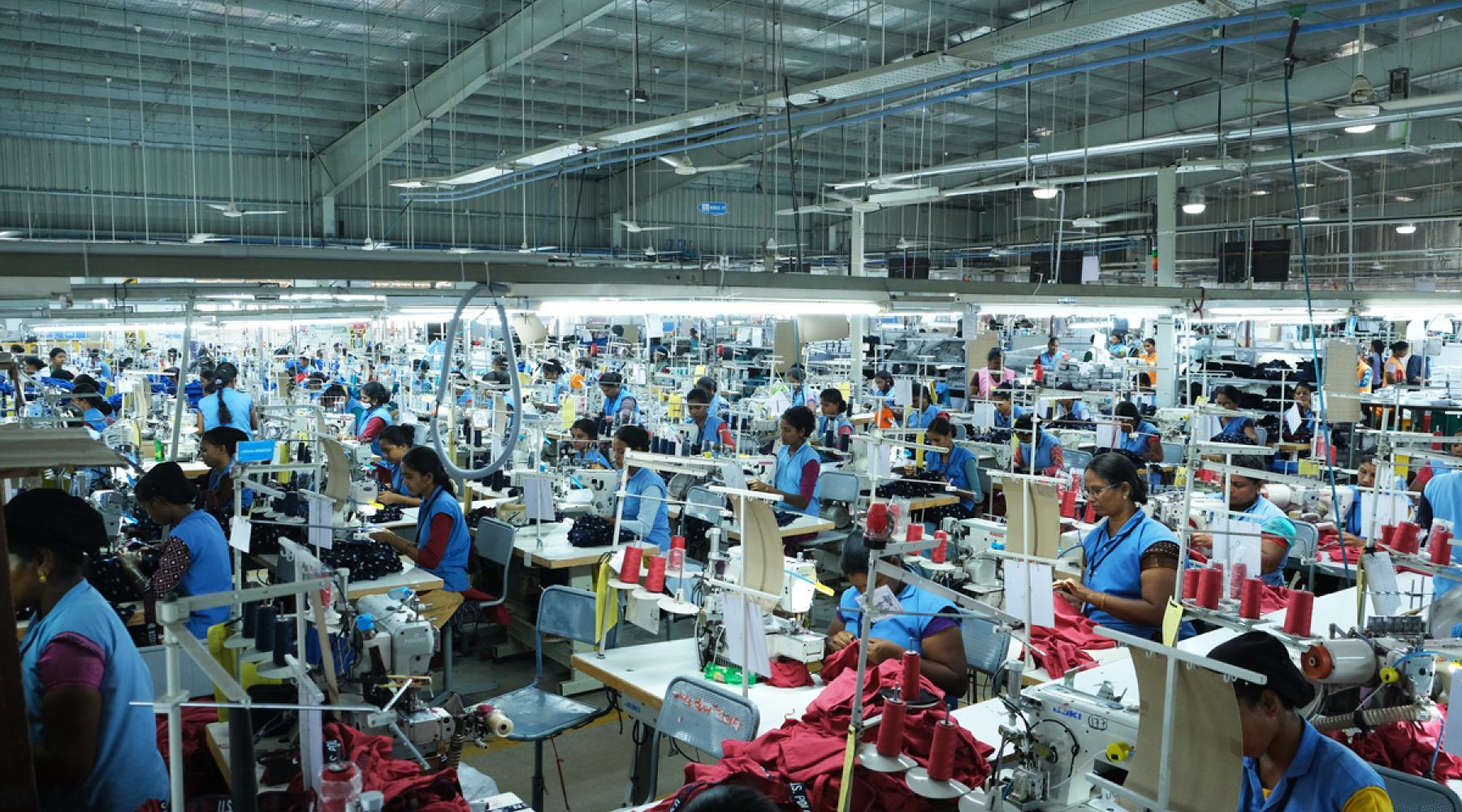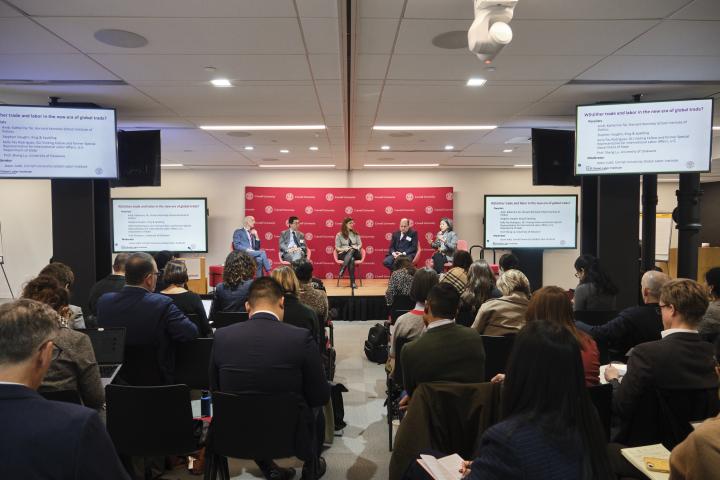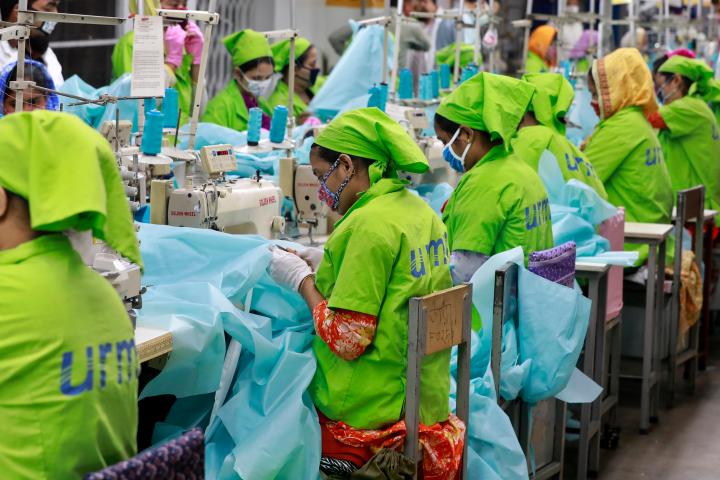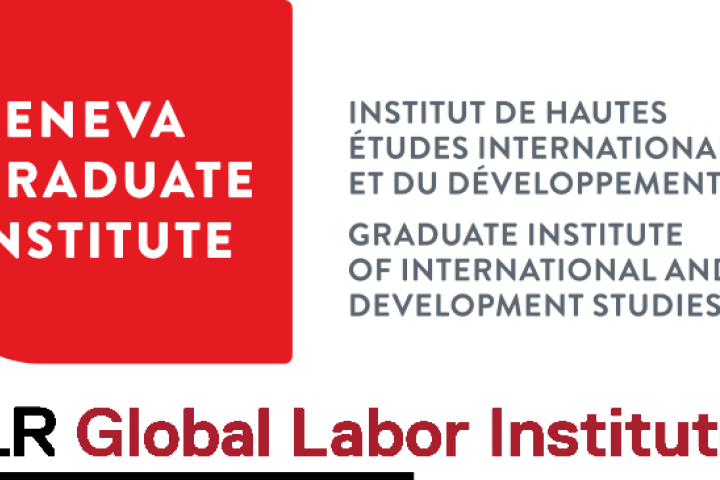
Assessment of a Unique Agreement to End Gender-Based Violence and Harassment in Apparel Factories
The Dindigul Agreement to End Gender-based Violence and Harassment (GBVH) has been successful in empowering women to identify and combat gender-based violence in the workplace, largely due to a strong female-led union and a productive labor-management relationship, according to a recent assessment by Cornell’s Global Labor Institute.
The Dindigul Agreement brought together global brands, such as Gap Inc., PVH Corp. and H&M, as well as international NGOs, union groups like Global Labor Justice and Asia Floor Wage Alliance, and a local union – Tamilnadu Textile and Common Labor Union and the Management of Natchi Apparel (P) Ltd. and the Eastman Spinning Mills (P) Ltd. – in Dindigul, India in 2022 to create a unique agreement to end gender-based violence.
Sarosh Kuruvilla, academic director of the Global Labor Institute, conducted the evaluation and compiled his results in the report, “The Dindigul Agreement to Eliminate Gender-Based Violence and Harassment: Does it Work?”
His findings will also be presented during panel discussion conducted by eCornell on Dec. 8, at 9 a.m.
“The big takeaway is that this is a really good demonstration project,” Kuruvilla said. “It shows that it is possible to empower marginalized women workers to combat gender-based violence at both the workplace and in their communities, through the establishment of a women-led labor union, and a multi-point grievance procedure, anchored by a high degree of labor management collaboration.
“Women are trained in gender-based violence all over the world, but when they face violence, they can only speak up about it if they have systems in place to report it and a strong union at their back.”
Kuruvilla, the Andrew J. Nathanson Family Professor in Industrial and Labor Relations, said an evaluation and assessment are crucial, given that the Dindigul Agreement, which is based on international soft – non-binding written instruments – and hard law, has been touted as a model for all factories where women workers predominate.
Kuruvilla’s assessment report adopted a broad scope centered around whether the agreement works; if so, why; and whether it is replicable and scalable. He found that the Dindigul Agreement was successful for the workers and in meeting the objectives of its creators, but the specific factors involved make it unclear whether it could work elsewhere.
“Before the union was formed in the factory, it was operating in the villages, in the communities where many of the workers lived,” Kuruvilla said. “So, the union was already working with women to help them deal with domestic violence and other issues in the community. As a result, this was an organization that already had a great amount of legitimacy with workers when they entered the factories.”
Whether the terms of the agreement could work elsewhere would depend on costs and contexts, the study found.
“The principles are transferable,” Kuruvilla said, “but this agreement worked for these very hyper-local reasons. You could introduce institutions and practices based on the same principles at another factory, but whether they will work and produce the same kind of result as found in Dindigul is unclear. This is because the quality of the labor-management relationship differs from factory to factory, and is influenced by many factors, including the strength of the union, the attitude of the management, the personalities of the union and management representatives and whether there is shared commitment to eradicate gender-based violence.”
Since gender-based violence is an urgent and global problem, Kuruvilla said, a factory-by-factory approach may not be enough, and scalable solutions are necessary. While he doesn’t see an easy route to scalability, one possibility is to include gender-based violence and harassment as a key subject in free trade agreements, such as the US-Mexico-Canada (USMCA) agreement.
“They might not be able to produce the same level of success, but even close would be good,” he said.



